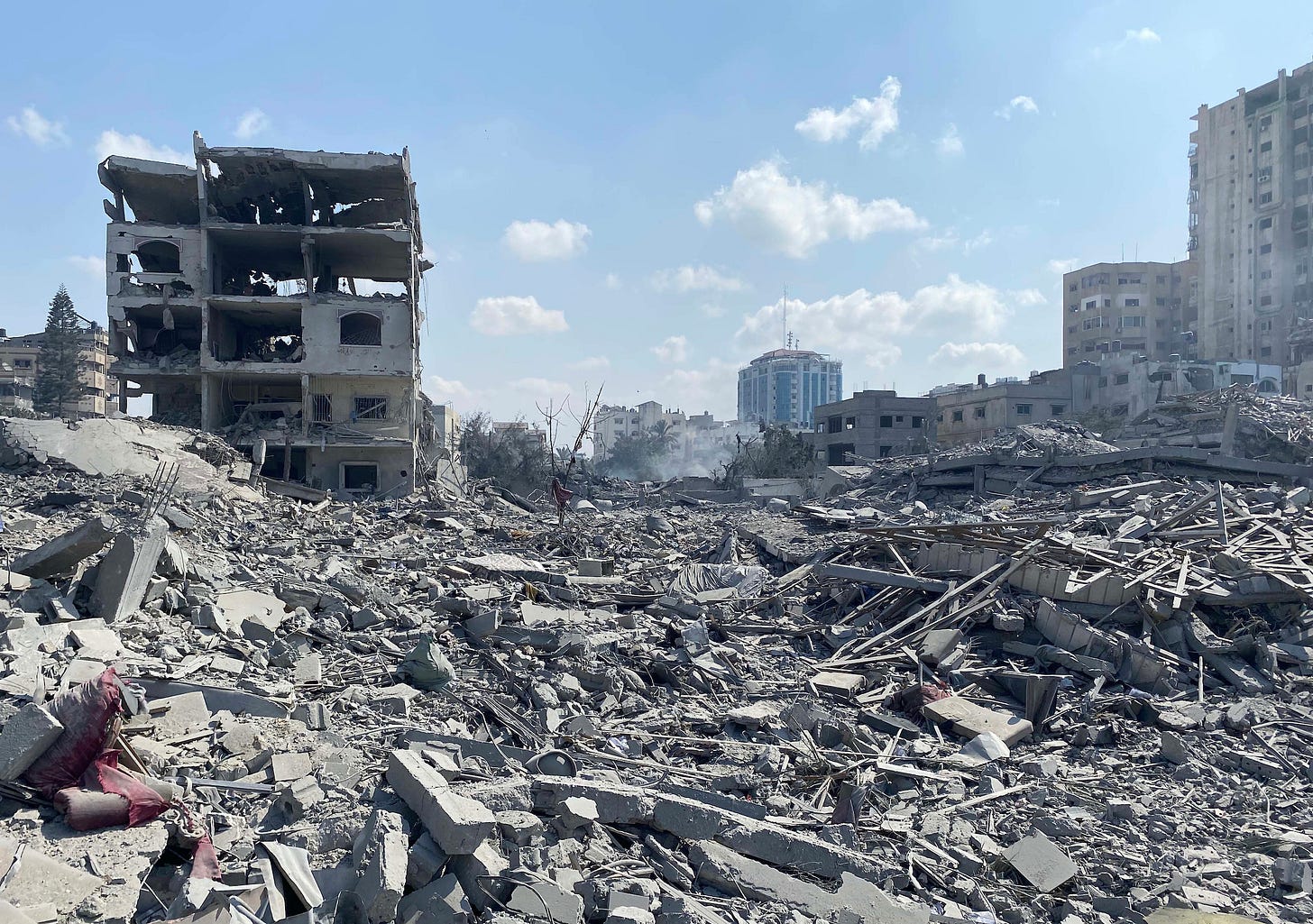How Uncritical U.S. Support of Israel Endangers Americans
Unconditional military and political support for Israel—despite harm to civilians—fuels terrorism and anti-American sentiment
Image: Palestinian News & Information Agency (Wafa), via Wikimedia Commons / CC BY-SA 3.0
Uncritical U.S. support for Israel—militarily and politically—has shaped American policy in the Middle East for decades.
We’re often told these actions are justified because Israel is our closest democratic ally, and that questioning their actions emboldens terrorists.
But the reality is far more complex.
While groups like Hamas threaten civilians, Israel’s own actions have fueled instability, terrorist recruitment, and deep anti-American resentment.
I encourage you to examine the history for yourself—and to question all sides of the narrative.
Clarifying My Position on U.S. Support for Israel
Here are a few clarifications I want to make so my position on U.S. support for Israel—and this post—isn’t misunderstood:
I believe that Israel has the right to defend itself.
I condemn the October 7th attacks by Hamas against Israeli civilians.
Israel has the right to fight Hamas.
My criticism is focused on how Israel has conducted that fight—and on its long-standing Gaza policies before October 7th.
Israel’s Economic Blockade and Travel Restrictions on Gaza
Even though Israel withdrew from Gaza in 2005 and Hamas took over, Israel has maintained a strict economic and travel blockade.
Imports and exports are heavily restricted—especially materials deemed "dual-use," which could be used for both infrastructure and weaponry.
This blockade has devastated Gaza’s economy and infrastructure.
Air, land, and sea travel in and out of Gaza is also tightly restricted—mostly by Israel, but also by Egypt at the Rafah border—effectively trapping Gazans inside.
While Israel enacts this blockade to stop Hamas from gaining weapons and resources, this action is disproportionate because it punishes Gazan civilians and denies them necessary resources that every territory needs to prosper.
How Israeli Airstrikes Fuel Terrorist Recruitment
Hamas is a terrorist organization responsible for horrific violence.
Israel has the right to stop it.
But in doing so, it has often gone far beyond military targets.
Thousands of Palestinian civilians have been killed, and civilian infrastructure destroyed—including hospitals, schools, and neighborhoods.
These deaths are not just tragic—they’re strategic mistakes.
Israel has used sanctions, blockades, and strikes as pressure tools, but these methods often backfire by pushing more people into Hamas’s arms.
While Hamas’s founding charter calls for the destruction of Israel, many recruits are motivated less by ideology and more by personal trauma—having seen friends or family killed or their homes reduced to rubble.
These experiences don’t just breed hatred for Israel.
They foster deep resentment toward the U.S., which supplies weapons and shields Israel diplomatically.
We've seen this pattern before in Iraq, Afghanistan, and Iran.
We will see it again in Gaza if the U.S. continues its unconditional support of Israel’s actions.
Today’s survivors of civilian casualties are tomorrow’s terrorists.
A Better Strategy for Fighting Terrorism
Terrorism grows in the hearts and minds of the people who feel powerless and oppressed.
While not all terrorism in the Middle east stems from Western aggression, our disregard for civilian lives often fuel it.
If the U.S. and Israel want to defeat terrorism long-term, they must reduce civilian casualties and avoid disproportionate responses—even when fighting terrible enemies.
Since Israel is our greatest ally in the middle east and receives billions of dollars in military and financial aid every year from the United States, it is our responsibility to hold Israel accountable for its actions in the middle east.
Imagine if your entire family and your friends were killed by a drone strike.
Imagine living with chronic pain and permanent scars.
Imagine your pain being dismissed by others.
How would you feel about the government that launched the attack—or the country that funded it?
That’s the reality for many Palestinians.
Lasting peace requires accountability and restraint.
Slowing down to minimize civilian casualties may take more time and result in more military casualties, but it is the best way to truly defeat terrorism.




Great post. I like that the criticism is aimed at Israel’s strategy against Hamas, not at Israel or Jewish people in general. Although I agree it is not the best way to fight terrorism I have to add that from what I have been reading, Hamas strategically put their bases under hospitals and places where incocent people took cover so for Israel, the palestinian people are just casualties to something bigger (Hamas).
And I know it is not a strong point (as it is simplistic) but Hamas would do the same if they had the power that Israel has unfortunately... it’s very hard to be the “bigger person” in situations like this, when emotions run so high after the brutality of the October attacks, where Hamas was literally torturing people and showing the bodies of those they killed.
None of this makes it simple. It just shows how tragic and complex the whole situation really is.